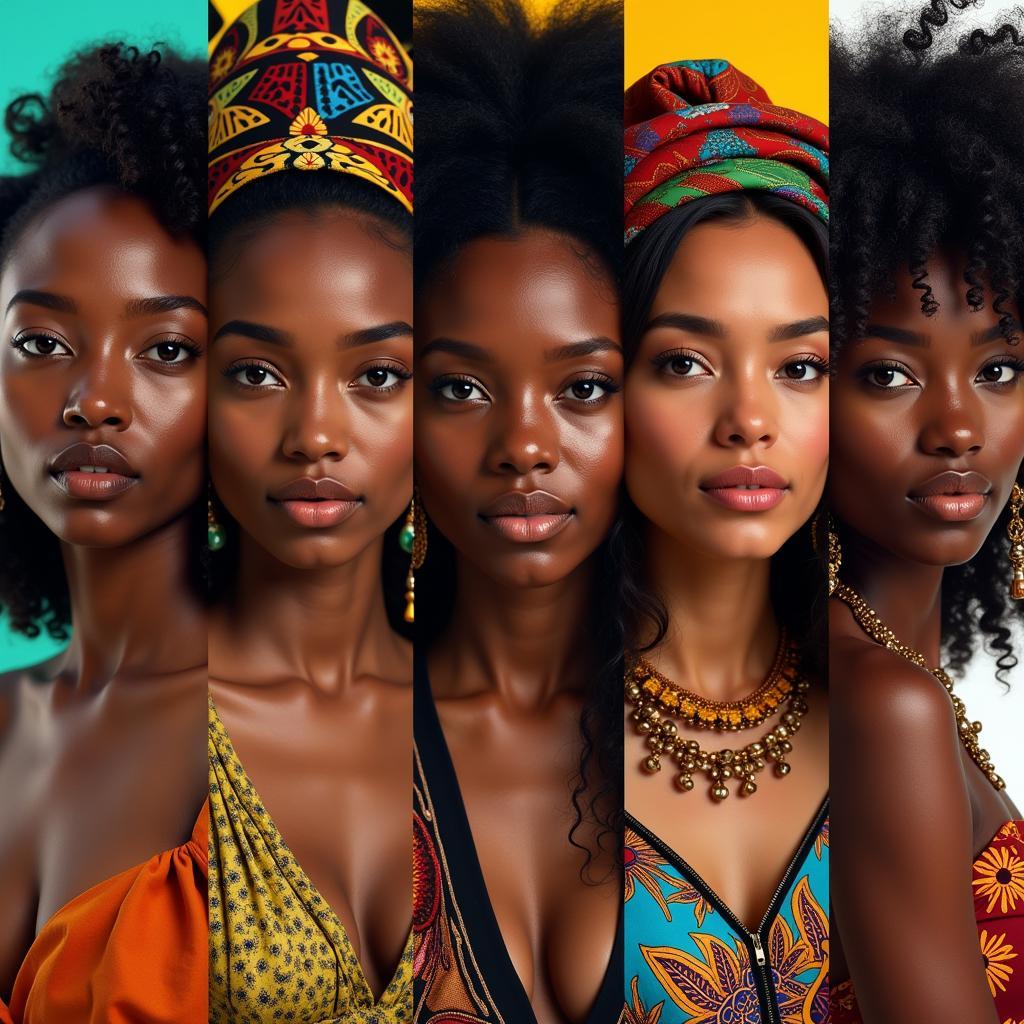African Folk Songs Lyrics: A Journey Through Culture and Tradition
African Folk Songs Lyrics offer a vibrant tapestry woven from the threads of history, storytelling, and cultural expression. These songs are more than just melodies; they are oral histories passed down through generations, preserving languages, beliefs, and traditions that might otherwise fade with time.
The Power of Oral Tradition: Preserving History Through Song
In many African cultures, written language was a late arrival. For centuries, knowledge, history, and societal values were entrusted to the power of the spoken word. This rich oral tradition found a natural home in music. African folk songs became vessels of memory, carrying tales of ancient kings, legendary heroes, and the everyday lives of people.
For example, the griots of West Africa, often referred to as “living libraries,” are master storytellers and musicians who have kept the history of their people alive for centuries through song. Their epic narratives, often accompanied by the kora (a 21-stringed harp-lute), recount genealogies, historical events, and moral lessons.
More Than Just Music: Exploring Themes in African Folk Song Lyrics
While the melodies themselves are captivating, the true beauty of African folk songs often lies in the lyrics. Examining these verses reveals a wide range of themes that reflect the multifaceted nature of African Life:
1. Love and Relationships: Songs of the Heart
Love, in all its forms, is a universal language, and African folk songs are replete with expressions of love, longing, courtship, and marriage. These songs offer glimpses into the social dynamics, courtship rituals, and cultural nuances surrounding love and relationships in different African societies.
2. Nature and the Environment: Celebrating the Natural World
Africa’s deep connection to the natural world is palpable in its folk songs. From the soaring grasslands to the mighty rivers, the lyrics often pay homage to the beauty, power, and bounty of nature. Animals, plants, and celestial bodies are not merely elements of the environment; they are often imbued with spiritual significance and appear as characters within the songs’ narratives.
3. Work and Daily Life: Finding Rhythm in Everyday Tasks
Work songs are another prominent category of African folk music. These songs served a practical purpose: to synchronize movements, lighten the load of physically demanding tasks, and boost morale. Whether it’s the rhythmic chanting of farmers planting seeds or the call-and-response singing of fishermen hauling in nets, these work songs transformed labor into a communal activity, fostering unity and resilience.
The Enduring Legacy: African Folk Songs in the Modern World
African folk songs, once confined to village gatherings and family celebrations, have transcended geographical boundaries and found new life in the global music scene. Contemporary artists across various genres draw inspiration from these traditional melodies and lyrical themes, incorporating them into their own music and introducing a new generation to the richness of African musical heritage.
The enduring appeal of African folk songs lies in their ability to connect us to the very soul of a continent—its history, its people, and its stories. By delving into the lyrics, we embark on a captivating journey that deepens our understanding and appreciation of African culture.
Expert Insight:
“African folk songs are like time capsules, preserving the wisdom, humor, and struggles of generations past,” says Dr. Abena Kwame, an ethnomusicologist specializing in West African music. “They offer invaluable insights into the human experience, reminding us of our shared humanity.”
FAQs About African Folk Songs Lyrics
1. What languages are African folk songs typically sung in?
African folk songs are as diverse as the continent itself and are sung in a multitude of languages. The specific language depends on the ethnic group and region the song originates from.
2. Are there any common musical instruments used in African folk music?
Yes, many traditional instruments feature in African folk music. Some common ones include the kora, djembe, balafon, mbira, and various types of drums and flutes.
3. Where can I find recordings of African folk songs?
Numerous online platforms offer a vast collection of African folk music. You can explore dedicated world music websites, streaming services, and online music stores.
4. Are there any modern artists who incorporate elements of African folk music?
Absolutely! Many contemporary artists from Africa and the diaspora draw inspiration from traditional folk music. Some notable examples include Youssou N’Dour, Salif Keita, Angelique Kidjo, and Baaba Maal.
5. How can I learn more about the specific cultural context of African folk songs?
Ethnomusicology books, academic journals, and documentaries are excellent resources for in-depth information. Additionally, cultural centers and museums often host events and exhibitions dedicated to African music and traditions.
Need Help Exploring the World of African Folk Songs?
Our team is passionate about sharing the beauty and depth of African culture. If you need assistance finding specific songs, lyrics, or learning more about this rich musical heritage, please don’t hesitate to reach out. Contact us at +255768904061, email kaka.mag@gmail.com, or visit us in Mbarali DC Mawindi, Kangaga, Tanzania. We have a dedicated team available 24/7 to assist you.



